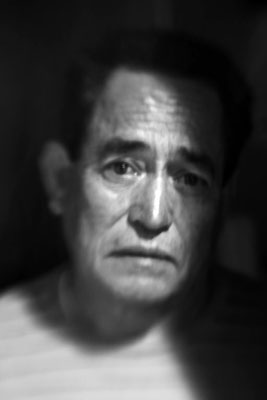All Nonfiction
- Bullying
- Books
- Academic
- Author Interviews
- Celebrity interviews
- College Articles
- College Essays
- Educator of the Year
- Heroes
- Interviews
- Memoir
- Personal Experience
- Sports
- Travel & Culture
All Opinions
- Bullying
- Current Events / Politics
- Discrimination
- Drugs / Alcohol / Smoking
- Entertainment / Celebrities
- Environment
- Love / Relationships
- Movies / Music / TV
- Pop Culture / Trends
- School / College
- Social Issues / Civics
- Spirituality / Religion
- Sports / Hobbies
All Hot Topics
- Bullying
- Community Service
- Environment
- Health
- Letters to the Editor
- Pride & Prejudice
- What Matters
- Back
Summer Guide
- Program Links
- Program Reviews
- Back
College Guide
- College Links
- College Reviews
- College Essays
- College Articles
- Back
Writer's Style: O. Henry
O. Henry, a former convict, is best known for his witty short stories with unexpected endings.
Born William Sydney Porter, this author decided to use a pen name for his writings while he was in prison and afterwards. Now known as O. Henry, it is quite clear that he was inspired by the twists and turns of his own life. In many of his pieces, O. Henry used his own life and wit as inspiration to communicate his stories to the readers.
O. Henry brought his own information about prison and “the life of crime” into his stories. This paired with wit and plot twists is what made him such a renowned author. In one of his stories titled, “A Retrieved Reformation”, it is quite obvious how he put his life in the story. The main character, Jimmy Valentine, was a safe cracker; or in other words, a bank robber. Throughout the story, Jimmy reformed himself and got his life together. This relates to O. Henry’s life because before he was an author, O. Henry worked at a bank. He later became lazy with his work, and was charged with embezzlement of the banks funds. During his time in prison, he reformed his life, like Jimmy, and started publishing his stories. This is only one example of how he used his own life to influence his stories.
While O.Henry’s style is to use inspiration from his own life to aid his stories, another big part of his style is to have ironic, witty endings. In The Cop and the Anthem (Henry 1904), O. Henry wrote about a homeless man that was currently living in Madison Square in New York. This character tried desperately to get arrested, but none of the cops would. Giving up on trying to be arrested, he walks through town and stops at a church when he hears a hymn that he vaguely remembers, and decides right there to get his life together. When he escapes his thoughts, he notices a cop standing behind him, arresting him for vagrancy (Schmoop). Seeing as how Soapy kept trying to get arrested but failed every time, one would think that he would not end up getting arrested. This goes to show how O.Henry uses ironic endings to create some sort of surprise for the readers.
Lastly, O. Henry wrote some of his stories based off of where he has lived. For example, he lived in New York, North Carolina, Texas, and Honduras which all provided great inspiration for his stories. In 1902 O. Henry moved to New York, which is where he really began to flourish as an author. He wrote some of his most well known pieces living there. These stories are known as “The Four Million” because they were all written and based in New York. These stories capture Henry’s literary genius of situational irony and his style of writing about personal experience. Another way O. Henry wrote based off of personal experience was by writing “Cabbages and Kings”, a story based off of his time living in Honduras. O. Henry’s smooth way of writing about the places he’s been is a big component of what has made him such a well know short story author.
O. Henry’s ironic writing style can be described as subtle yet surprising, since the irony usually happens at the end and all at once. This early 20th century author used remarkable ways of writing to put a somewhat sick, funny twist on crime, poverty, and many subjects that he wrote about. He took what he knew from his life and the places he had been to write stories that could make people laugh, and feel speechless. O. Henry’s life had a major impact on his point of view, and thus adding to the morality truth of his stories. In conclusion, O. Henry’s ironic writing style is very much inspired by his own life.

Similar Articles
JOIN THE DISCUSSION
This article has 0 comments.
